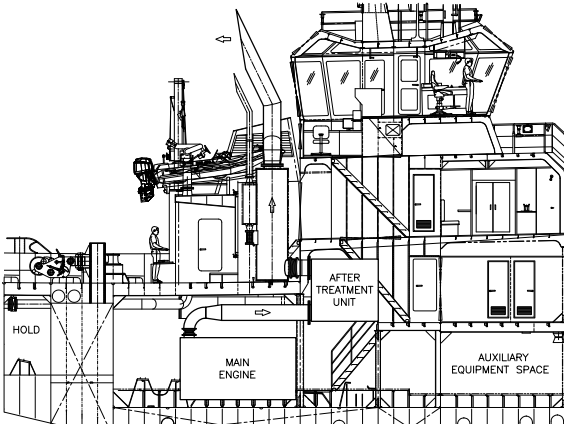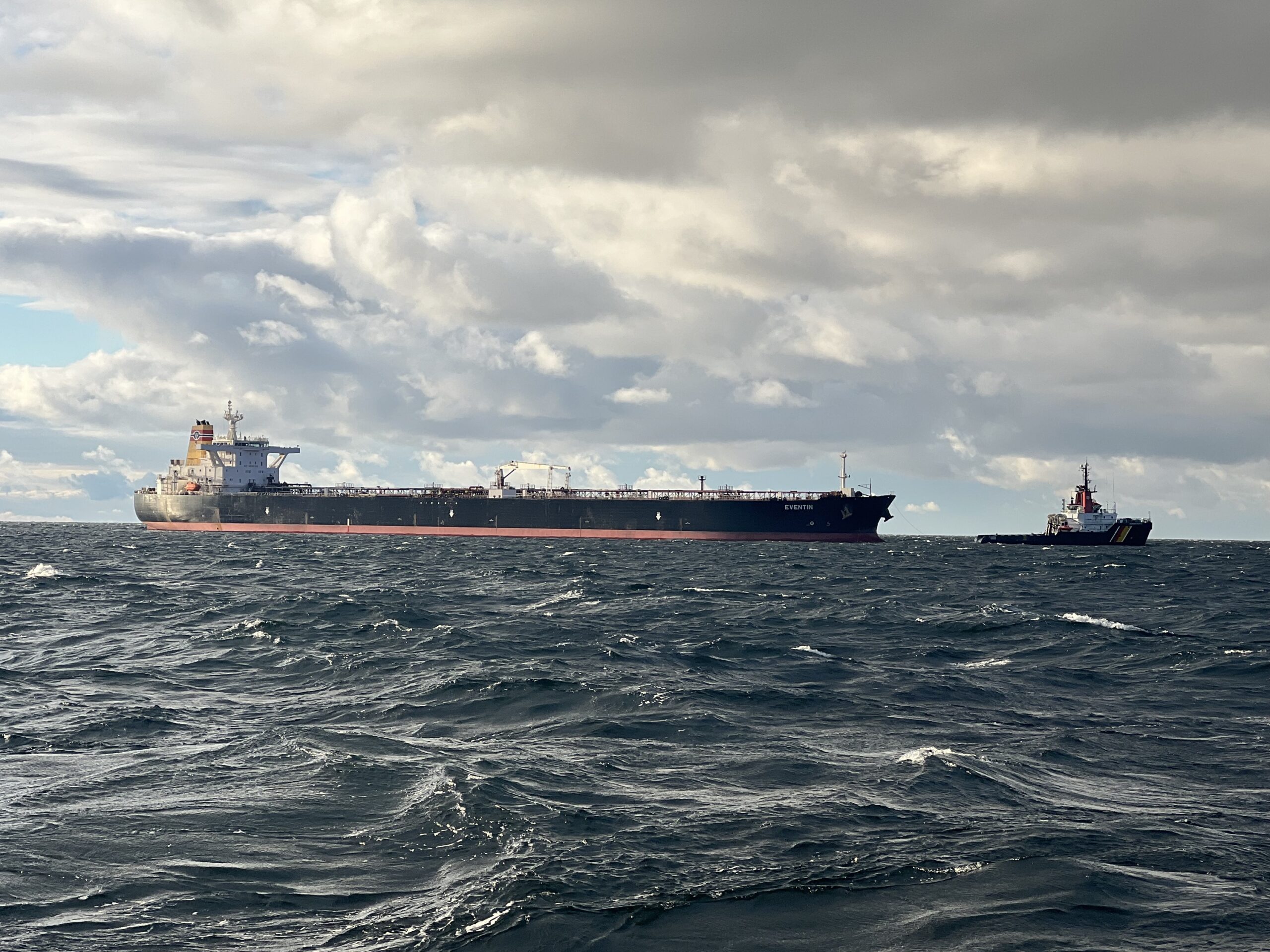
 – By Allan B. Turner, P.Eng., Mechanical Engineer
– By Allan B. Turner, P.Eng., Mechanical Engineer
With the pending introduction of EPA Tier 4 and IMO Tier III engine exhaust emission regulations starting in 2014 and 2016 respectively, there is considerable concern how these regulations will affect tug design and operations. Over the last year Robert Allan Ltd. has been cooperating with a number of high-speed diesel engine manufacturers on their proposed emission solutions and how these will affect tug and larger vessel designs.
From discussions to date, exhaust after-treatment technologies will be required to meet EPA Tier 4 and IMO Tier III. Both impose major reductions on NOx emissions limits, and in addition EPA Tier 4 addresses stringent new limits on particulate emissions. Current indications are reasonably positive that the EPA particulate emissions requirements can probably be met with in-engine technologies on high-speed engines. This is most encouraging as, if achievable, it would avoid the need for oxidation catalysts/filters to control particulates. There are a number of after-treatment technologies that are being considered by engine manufacturers to meet the NOx limits of the new emission regulations. The main two being considered are Selective Catalytic Reaction (SCR), and Exhaust Gas Recirculation (EGR). Both technologies will require additional equipment to be fit on the vessel and for SCR technologies additional fluids to be stored.
The introduction of these NOx reduction technologies in the marine industry and particularly the tug industry will have significant design implications. However based on the proposed emission solution information provided by the engine
manufactureres to Robert Allan Ltd. to date, the level of required design changes will be minimal and easily accounted for with minor modifications in existing RAmparts, RAstar, Z-Tech™ and RAmpage Class designs when fitted with highspeed diesel engines.
Although not fully understood at this date from information provided, and given the inherent limitations of medium-speed diesel engines, Robert Allan Ltd. currently anticipates somewhat greater design challenges for tugs required to meet the new emission regulations when fitted with medium-speed engines. These design challenges may restrict the use of medium-speed engines in smaller tug designs.
There are other challenges to overcome with the introduction of these new emission technologies in terms of vessel operations and logistics. However as other industries are going through these same challenges prior to the marine industry,
there will be a great deal of technology, operation and logistic transfer that will most likely ease the transition greatly for the marine industry.
Robert Allan Ltd. is confident that with introduction of EPA Tier 4 and IMO III emission regulations and when fitted with high-speed diesels, future tug designs will operate and function much as they currently do with very little influence from
the new regulations. We will continue to provide more in-depth information on this topic as applicable in the run-up to emission regulations introductions.

 Join The Club
Join The Club











